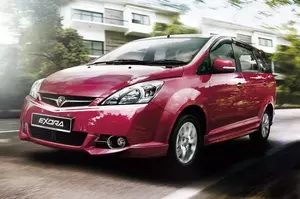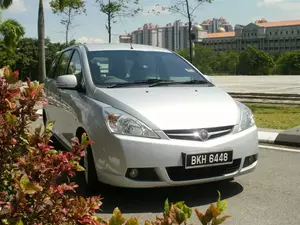
| Vehicle | Precise engine size | Difference from world average | Engine size to consumption ratio | Horsepower from 1 L | Engine size to 100 kg of weight |
|---|---|---|---|---|---|
| 1.6 16V |
1.56 L (1561 cc) |
33.5% smaller | - | 90 hp from 1 L | 112 cc to 100 kg |
| Vehicle | 1.6 16V |
|---|---|
| Precise engine size | 1.56 L (1561 cc) |
| Difference from world average | 33.5 smaller |
| Engine size to consumption ratio | - |
| Horsepower from 1 L | 90 hp from 1 L |
| Engine size to 100 kg of weight | 112 cc to 100 kg |

| Vehicle | Precise engine size | Difference from world average | Engine size to consumption ratio | Horsepower from 1 L | Engine size to 100 kg of weight |
|---|---|---|---|---|---|
| 1.6 16V |
1.56 L (1561 cc) |
33.5% smaller | - | 88 hp from 1 L | 104 cc to 100 kg |
| Vehicle | 1.6 16V |
|---|---|
| Precise engine size | 1.56 L (1561 cc) |
| Difference from world average | 33.5 smaller |
| Engine size to consumption ratio | - |
| Horsepower from 1 L | 88 hp from 1 L |
| Engine size to 100 kg of weight | 104 cc to 100 kg |

| Vehicle | Precise engine size | Difference from world average | Engine size to consumption ratio | Horsepower from 1 L | Engine size to 100 kg of weight |
|---|---|---|---|---|---|
| 1.6 16V |
1.6 L (1597 cc) |
31.9% smaller | 50 cc to 1 mpg | 88 hp from 1 L | 106 cc to 100 kg |
| Vehicle | 1.6 16V |
|---|---|
| Precise engine size | 1.6 L (1597 cc) |
| Difference from world average | 31.9 smaller |
| Engine size to consumption ratio | 50 cc to 1 mpg |
| Horsepower from 1 L | 88 hp from 1 L |
| Engine size to 100 kg of weight | 106 cc to 100 kg |

| Vehicle | Precise engine size | Difference from world average | Engine size to consumption ratio | Horsepower from 1 L | Engine size to 100 kg of weight |
|---|---|---|---|---|---|
| 1.6 16V |
1.6 L (1597 cc) |
31.9% smaller | - | 79 hp from 1 L | 114 cc to 100 kg |
| Vehicle | 1.6 16V |
|---|---|
| Precise engine size | 1.6 L (1597 cc) |
| Difference from world average | 31.9 smaller |
| Engine size to consumption ratio | - |
| Horsepower from 1 L | 79 hp from 1 L |
| Engine size to 100 kg of weight | 114 cc to 100 kg |